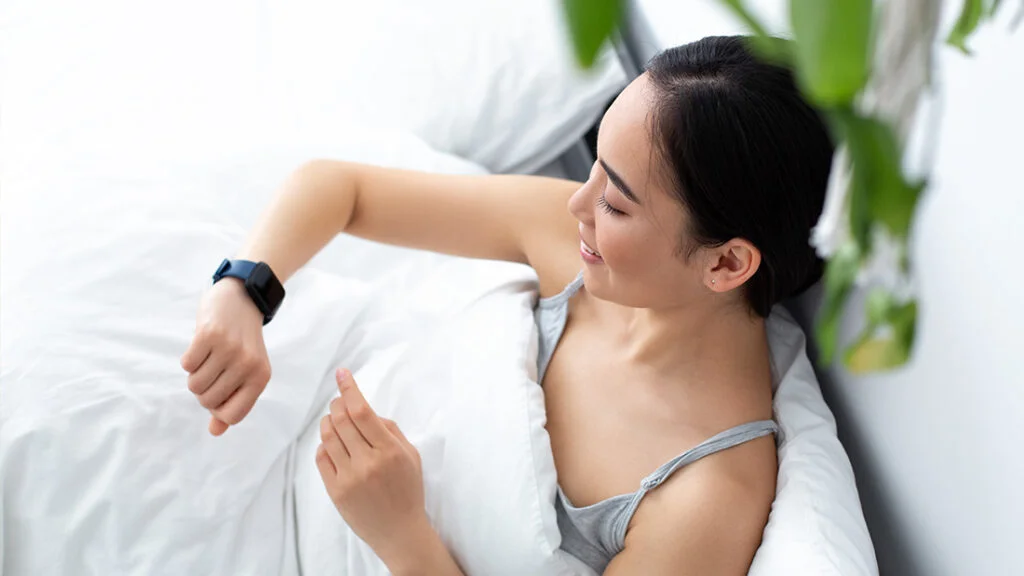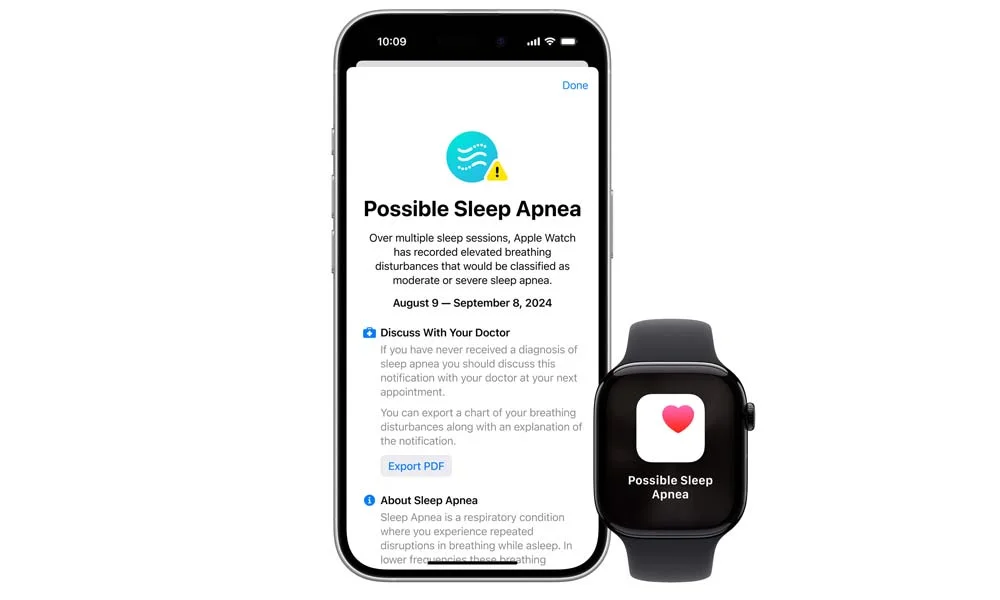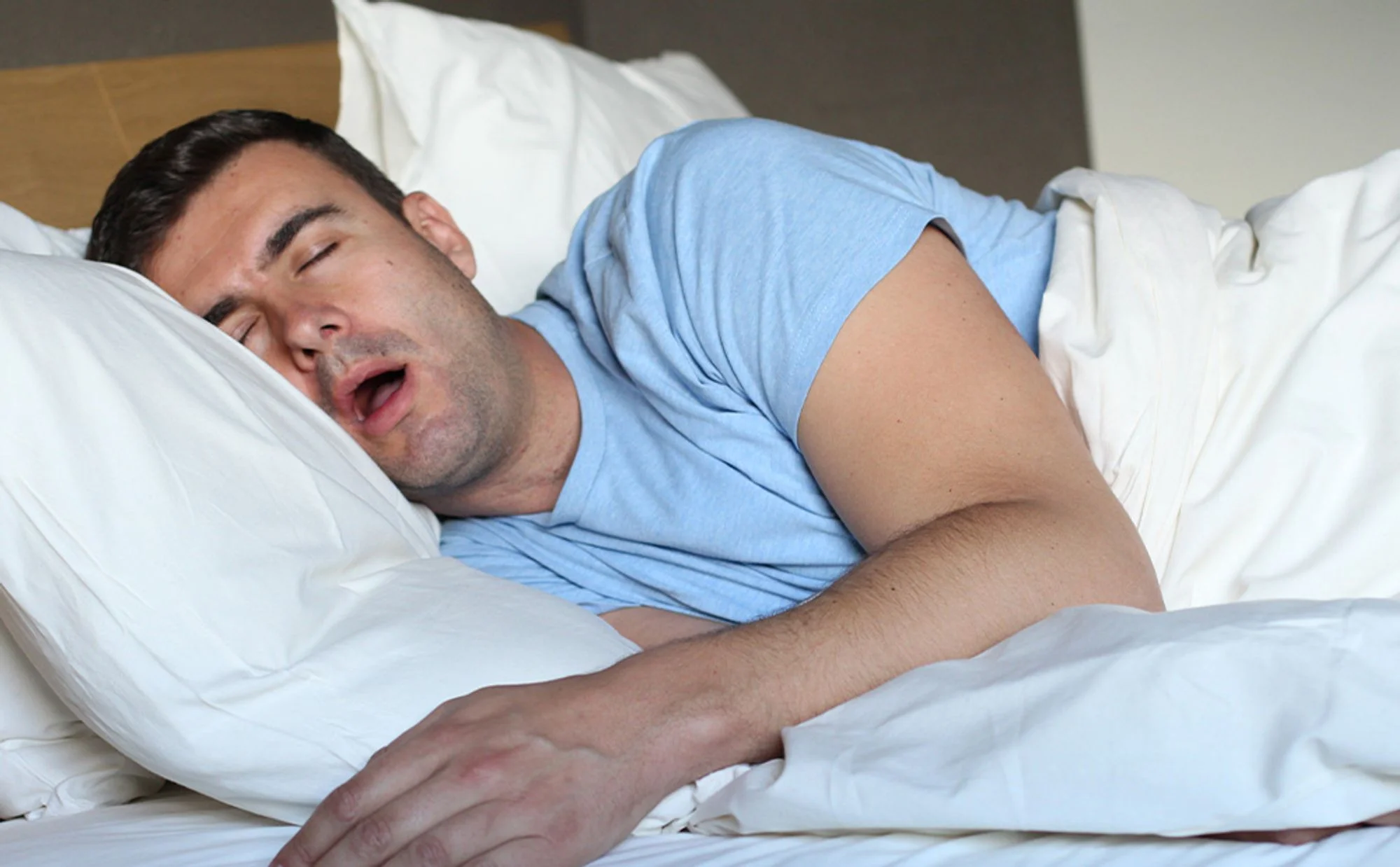
Everyone wants to get a good night of rest, and some people even take extra measures before bedtime to ensure that they get the best possible rest they can each night. However, some people have taken getting a good night of restful sleep to the next level, and are chasing perfect nights of sleep.
Recently, the New York Times interviewed several Sleepmaxxers, or people who are obsessed with the perfect night of sleep, to get an idea of how the practice impacts their sleep, for the better or for the worse. While this might seem pretty begin, Sleepmaxxing can actually have some pretty negative consequences for the mental health of Sleepmaxxers. (1)
What Is Sleepmaxxing?
More specifically, Sleepmaxxing is the practice of seeking perfect sleep by doing everything that is humanly possible to eliminate any distraction or obstacle that could negatively impact your sleep. Sleepmaxxers often use viral sleep-focused products like magnesium foot spray, mouth tape, chin straps, and sleep trackers to ensure that their sleep is flawless. (1)
One Sleepmaxxer, named Derek Antoseik told the New York Times about his journey to becoming a Sleepmaxxer, even though he doesn’t consider himself one now. The New York Times reported that Derek started to take sleep more seriously after realizing that he still carried some unhealthy habits from his 20s. In his quest for better sleep, Derek found a passionate sleep community on Reddit, and quickly became involved. This led to Derek becoming very interested with his perfecting and tracking his sleep with popular sleep tracker, the Oura Ring. (1)
Ultimately, the New York Times reported that Derek had a pretty split experience with his quest to obtain the perfect night of sleep, noting that “In Mr. Antosiek’s case, the earplugs, mouth tape and nasal dilator have helped him, he said. But the bed fan didn’t do much, and the Oura Ring made things worse. ‘I found myself waking up and immediately looking at my score, like, ‘Did I get good sleep?’’ he said.” (1)
Can Sleepmaxxing Have a Negative Impact on Sleep?
Orthosomnia is a condition where people obsessively pursue optimal sleep based on data taken from their various sleep trackers. Granted, orthosomnia is a fairly new term to define a phenomenon that is also fairly new, given that sleep trackers have only hit the market in the past few years. Someone who is experiencing orthosomnia might engage in behaviors like obsessing over their sleep tracker, setting misguided sleep goals, and anxiety about sleep.
A study published in 2017 delved into the phenomenon of the obsessive use of sleep trackers as they became more prevalent. The researchers created the term Orthosomnia with “‘ortho’ meaning straight or correct, and ‘somnia’ meaning sleep.” Researchers chose this term because “because the perfectionist quest to achieve perfect sleep is similar to the unhealthy preoccupation with healthy eating, termed orthorexia.” (2)
The study analyzed three cases of people who were using sleep trackers to analyze their sleep, how the use of the sleep tracker could be impacting their sleep, how likely the patient was to accept a challenging opinion about the validity of the sleep tracker, and whether or not sleep trackers could successfully be added to Cognitive Behavioral Therapy for Insomnia (CBT-I). (2)
Ultimately the researchers concluded that “More research is needed on whether sleep tracker technology can be integrated into CBT-I because regardless of poor validation data, consumers are enthusiastic about this technology and often think the data are highly consistent with their experience of their sleep.” (2)

Apple’s Sleep Apnea Detection Feature Has Been Approved By the FDA – Here’s What to Know.

10 Sleep Trends for 2024: Separating Fads from Science

Do Those TikTok-Famous Chin Straps Actually Work? Here’s What an Expert Says

Apple Watches Can Now Measure How Much Daylight You’re Getting — and Make Recommendations
Sources
- Lindsay, Kate. How the pursuit of perfect sleep can backfire. The New York Times. September 12, 2024. https://www.nytimes.com/2024/09/08/well/better-sleep-quality.html
- Baron, Kelly Glazer, Abbott, Sabra, Jao, Nancy, et al. Orthosomnia: Are some patients taking the quantified self too far? JCSM. 2017. DOI: 10.5664/jcsm.6472


























